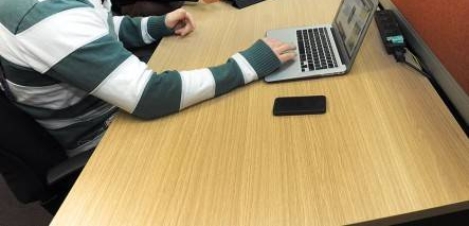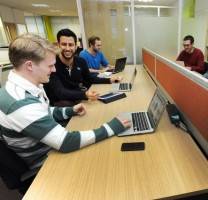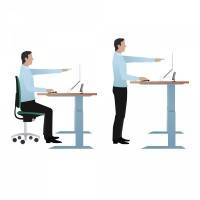May 23, 2015
The latest edition of Insight Weekly is available to view online
 In this week’s issue; Charles Marks on how the changing way we work presents challenges for the development of commercial property; Kati Barklund says management is needed to encourage people to use sit stand workstations properly and Peter Ames argues it is the flexibility of shared offices which allows SMEs to mould a space to their brand and make it feel like home. We learn that the European workforce is optimistic about the impact of new and emerging workplace technology, why women of over 55 make the best business strategists and Mark Eltringham agrees that the workplace is changing but the death of the office is a myth. The complete Work&Place archive is now available for you online and sign up to the newsletter via the subscription form in the right hand sidebar, follow us on Twitter and join our LinkedIn Group to discuss this and other stories.
In this week’s issue; Charles Marks on how the changing way we work presents challenges for the development of commercial property; Kati Barklund says management is needed to encourage people to use sit stand workstations properly and Peter Ames argues it is the flexibility of shared offices which allows SMEs to mould a space to their brand and make it feel like home. We learn that the European workforce is optimistic about the impact of new and emerging workplace technology, why women of over 55 make the best business strategists and Mark Eltringham agrees that the workplace is changing but the death of the office is a myth. The complete Work&Place archive is now available for you online and sign up to the newsletter via the subscription form in the right hand sidebar, follow us on Twitter and join our LinkedIn Group to discuss this and other stories.











 Lately I’ve seen many articles about sit stand workstations and references to Scandinavia where almost all of us employees have access to sit stand workstations. It is true that most of the Scandinavian employees have access to sit stand workstations and in for example in Denmark employers are required by law to provide sit stand workstations to the employees, but this does unfortunately not automatically mean that the Scandinavian employees actually stand by the workstations. Even though most of us actually know that sitting is bad for our health, wellbeing and even our performance, we tend to sit most of the time while working. It is mostly about us being used to sit while working. It is a habitual behaviour and instead we need to get new habits of standing and moving at work. Change management is needed.
Lately I’ve seen many articles about sit stand workstations and references to Scandinavia where almost all of us employees have access to sit stand workstations. It is true that most of the Scandinavian employees have access to sit stand workstations and in for example in Denmark employers are required by law to provide sit stand workstations to the employees, but this does unfortunately not automatically mean that the Scandinavian employees actually stand by the workstations. Even though most of us actually know that sitting is bad for our health, wellbeing and even our performance, we tend to sit most of the time while working. It is mostly about us being used to sit while working. It is a habitual behaviour and instead we need to get new habits of standing and moving at work. Change management is needed.




















May 25, 2015
This year’s ICFF furniture show in New York marked a spirited revival
by Rob Kirkbride • Comment, Events, Furniture, Workplace design
(more…)